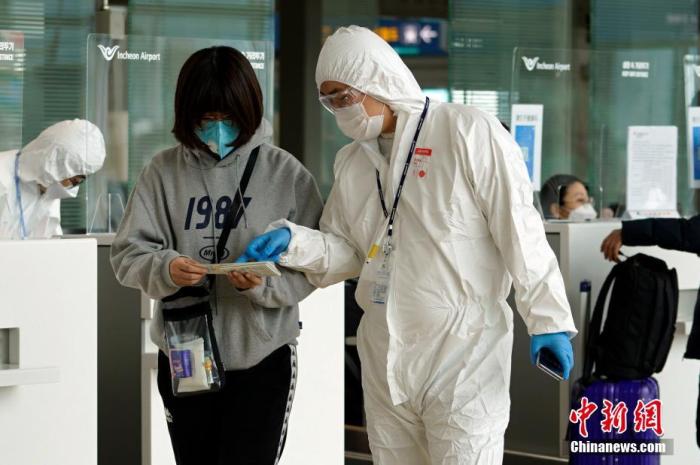China News Service, January 12. According to Yonhap News Agency, on the 12th, Gao Zairong, a spokesman for the Korean Agency for Disease Control, said that as of 0:00 local time on the 12th, more than 70 cases of new crowns have been diagnosed among the people who recently went to the United States to participate in the exhibition and returned to South Korea. cases, and this number is expected to continue to increase.
In addition, due to the continued spread of the new crown epidemic, South Korea's entry policy may continue to be extended.
Data map: Incheon Airport, South Korea, airline staff check passengers' epidemic prevention certificates, etc.
Photo by China News Agency reporter Zeng Nai
According to the report, Gao Zairong emphasized that the corresponding returnees need to be tested on the first day of entry and before release from isolation, strictly abide by the isolation regulations, report suspected symptoms in a timely manner, and actively cooperate with community epidemic prevention work.
He suggested that some of those exempted from quarantine should work from home for 3 days after receiving entry tests near the airport, and be tested again on the 6th to 7th days after entering the country to prevent the spread of the epidemic in the community.
The report pointed out that with the increasing number of cases of infection of the new coronavirus Omicron variant among Korean overseas inbound personnel, it is expected that the prevention and control measures such as the quarantine for 10 days of inbound personnel originally scheduled to expire on February 3 will continue to be extended. .
On the 12th, Sun Yinglai, head of the social strategy team of the Central Emergency Response Department of South Korea, also said that considering the increase in imported confirmed cases and the spread of Omicron, the current entry quarantine policy is likely to continue to be extended.
According to reports, prior to this, South Korea's epidemic prevention department required all immigrants, regardless of whether they were vaccinated or not, to be quarantined at home for 10 days, and banned short-term foreigners from 11 African countries from entering.
Even so, the scale of imported cases from abroad is still expanding.

